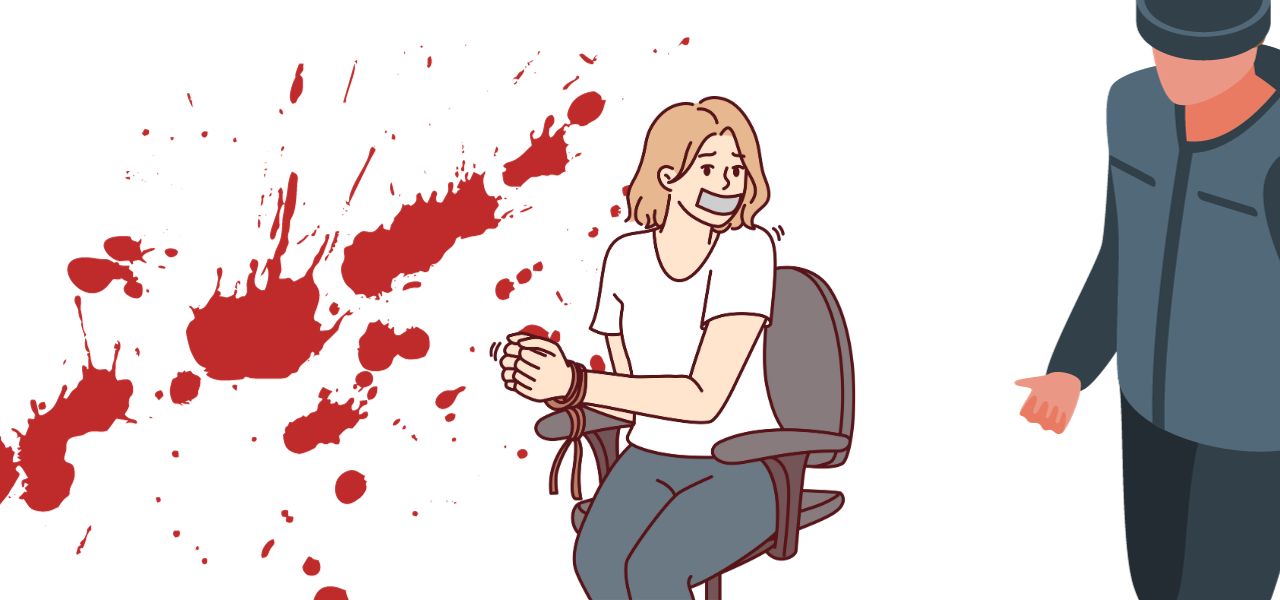By: Abdul Rosyidi
The practice of bride kidnapping (kawin tangkap) has occurred again and is being widely discussed after a video of a woman being kidnapped by many men circulated on social media. The video shows that it occurred in Southwest Sumba on Thursday, September 7, 2023.
This was not the first incident, on December 6 2019, one of Facebook accounts distributed a half-minute video. The bride kidnapping video became a polemic and was closed by Facebook. However, the video has spread to various other social media platforms. As of June 22 2020, the video on Twitter had been watched more than 500 thousand times.
Women and Children Solidarity (Sopan) recorded that from 2013 to 2023 there were 20 cases of bride kidnapping that occurred in West Sumba, Southwest Sumba and Central Sumba, East Nusa Tenggara (NTT).
Even though it is often referred to as a cruel and inhumane act, there are still some people who call bride kidnapping a tradition. Many also say that it is a culture that has been passed down from generation to generation so it is impossible to stop it. The practice of bride kidnapping is closely related to the culture of the Sumba society, eliminating it would eliminate the identity and culture of the locals. Is it true?
National Commission on Violence against Women (Komnas Perempuan) has conveyed its position that the practice of bride kidnapping is a violence against women based on patriarchal culture. According to the National Commission on Violence Against Women, cases of bride kidnapping fall into the category of violence and forced marriage. This violates Law (UU) Number 12 of 2022 concerning Criminal Acts of Sexual Violence (TPKS). In the new law which favors the victim, bride kidnapping is included in the elements of sexual violence.
Deputy Chair of the National Commission on Violence Against Women, Budi Wahyuni, on December 9 2019 said that the culture of violence should not be maintained. A sense of cultural preservation cannot be used to perpetuate violence. She also conveyed that there are many customs in Indonesia that continue to perpetuate violence against women. For example, the customs of female circumcision and child marriage. These customs should be revisited so as not to cause harm and suffering to women.

An anthropologist from Widya Mandira University (Unwira) Kupang, Pater Gregorius Neonbasu, said that bride kidnapping on the island of Sumba is not a culture. It is just a pragmatic custom, which occurs because of the conditions and climate of life for a moment. For people in the inland of Sumba Island, such as in the Kodi and Wawewa areas, they consider this to exist because of a hereditary custom that cannot be eradicated, even though this is considered to be demeaning to women.
Gregorius said that there were several researchers from other countries who conducted research on this practice, some of them were Janet Alison Hoskin who researched in Kodi, Southwest Sumba and Joel C Kuipers who conducted research in Wawewa, West Sumba. They argue that bride kidnapping should not be called a culture, it is just a habit that always occurs over and over again.
He also believes that the people of Sumba in general are also struggling to avoid this practice as much as possible, because many people do not agree with this. Because, he said, anthropologically, the people of Sumba, like the people of NTT in general, value the role of women very highly thus they must be respected.
I myself strongly agree that the practice of bride kidnapping must be stopped because this custom is hurtful, detrimental and takes away women’s rights. The occurrence of this incident also tarnished everyone’s sense of humanity. If someone says it is a culture, then, a culture which is an accumulation of people’s habits in living their daily lives should be based on principles that uphold the lives of all creatures, especially humans and humanity.
To be able to meet human needs, a culture must continue to adapt to the changing needs of society. A culture must be able to go hand in hand with changing times so that it is always related to its context. Culture is also an agreement that consent should come from everyone in society, not just men.
Women in many cultures and even religions are often considered a property, or their presence is not taken into account. Therefore, culture and religion must always be interpreted in today’s context so that the values promoted by culture and religion remain relevant.
So far, we often hear contextualization of religious teachings or holy verses, but never contextualization of cultural texts. The people of the archipelago, which are rich in tradition and culture, should start to contextualize. Without this effort, the jargon “preserving culture” will lose its meaning and relevance for our lives today.
Traditions are formed from certain values that guide a person in society. These values are considered by its members to be sacred because apart from being a guide to life, they are also related to the existence of the self and group, the meaning of life, and identity. Values are actually the result of human means to apprehend the messages of life, so most of them vary from place to place. However, the main value of all values is humanity and welfare.
The accumulated values then become norms in society. Norms regulate what is allowed and what is not allowed so that every member of society remains in the circle. Meanwhile, tradition is the embodiment of these values in various customs, arts and rituals. These traditions of course change depending on many factors that influence values and materials.
Values, norms and traditions that have been passed down from generation to generation are considered permanent cultural heritage. In fact, from the past until now culture will continue to change according to the changing era. Claims for the persistence of traditions usually stem from a community’s sense of belonging and cultural identity. Establishment is done by making it sacred and connecting it with something supernatural. The established culture may then deviate from initial values, apart from being difficult to adapt to the era and also because its society forgets the substance of all culture: to humanize humans.
The assumption that men are superior to women is the main value of our old, patriarchal culture. We should be able to start abandoning these values because all humans are equal, regardless of gender, and so on. These new values are today’s universal values which are believed, agreed upon, and used as guidelines for all human beings in the world. Universal humanity should be a kind of ideal for the transformation of our values, norms, traditions and culture.

There are many ancient cultures that are in line with universal humanitarian ideals, but there are also many that are not aligned so that their application today is very problematic. Old values that are outdated and irrelevant often cause humanitarian problems because they often conflict with the conscience of today’s society. There are also old values that are no longer well known to the public but whose practices and rituals are still carried out to this day.
It’s not just bride kidnapping in Sumba, there are still many traditions around us that are based on old values that discriminate against women. Apart from female circumcision and child marriage which have been mentioned above, we are certainly familiar with the term ‘forced marriage’. The practice of forced marriage still occurs everywhere. Forced marriage occurs when a woman’s father or legal guardian has the “right” to matchmaking her with a man without her consent. A woman is considered to have no autonomy to determine her own life. In Islamic teachings, a mujbir guardian has the right of ijbar, namely the right to forcibly matchmaking his guardian’s woman without her consent.
Bride kidnapping, forced marriages, female circumcision, child marriages and other traditions must be revisited, of course taking into account their socio-cultural dimensions. Prohibiting bride kidnapping directly will not be effective because of its connection to the culture of the Sumbanese people. The most likely thing now is to process these unlawful actions.
Apart from that, it is also important to cultivate new values in people who live in old structures. But the most important thing is actually how the new structure (government and its modern apparatus) can provide better welfare guarantees for society. []
This article was translated by Napol Riel.
